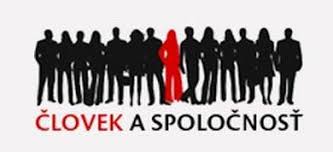Tragické návraty. Osudy ukrajinských reemigrantů z Československa v SSSR
Tragic returns. The fates of Ukrainian reemigrants from Czechoslovakia in the USSR
Author(s): Dušan JanákSubject(s): Social history, Victimology, Interwar Period (1920 - 1939), History of Communism, Migration Studies
Published by: Spoločenskovedný ústav SAV, Slovenská akadémia vied
Keywords: Czechoslovakia; Ukrainian re-emigrants; USSR; Political persecution of intelligentsia; The 1st half of 1930s;
Summary/Abstract: The article is a case study of the fates of the Ukrainian re-emigrants from Czechoslovakia in Soviet Ukraine in the first half of the 1930s, which have not been processed in detail yet. In the introduction, it briefly summarizes the Czech literature on Ukrainian re-emigration in Czechoslovakia in the inter-war period as well as people forcibly moved to the USSR after the end of World War II. Additionally, it briefly recalls the results of research work which has taken place over the last decades, focusing on victims of the Soviet political persecutions in 1920s and 1930s, including the fates of Czechs, Czechoslovak citizens and inhabitants of Czech lands in the Soviet Union. It then characterizes two main groups of Ukrainian emigrants who later returned to the Soviet Union and became the target of repression in the 1930s. These were so called “Galicians”, i.e. members of the Ukrainian Galician Army, whose troops retreated to Czechoslovak territory in 1919–1920, and the so called “Petliurites”, i.e. soldiers and officers of the army units of the Ukrainian National Republic who were interned in camps in Polish territory and subsequently moved in the 1920s to Czechoslovakia. In addition, the majority of two thousand students at Czech and Ukrainian schools in Czechoslovakia came from among their ranks, some of whom returned to the USSR after their studies. The first persecution of members of the intelligentsia from the so called “Galicians” was detected in 1932–1933; most of them, including professor Michal Lozinski, a former member of the government of the People's Republic of the West Ukraine, were extrajudicially sentenced by the political police for membership of a Ukrainian military organisation to five or ten years in a labour camp. In the period of the Great Terror they were imprisoned in the facilities of the White Sea–Baltic Camp on the Solovets and were executed at Sandarmoch in Karelia on the 3rd of November 1937. From 1933, the former “Petliurites” were arrested and accused of espionage in Czechoslovakia in connection with the Czech consulate in Kharkiv or of Czechoslovak citizens. Czechoslovak citizens, undoubtedly with regard to the development of mutual relations, were only expelled from the USSR. Furthermore, these cases were reopened during the Great terror leading to far more severe repression including executions.
Journal: Človek a spoločnosť
- Issue Year: 22/2019
- Issue No: Suppl.
- Page Range: 30-43
- Page Count: 14
- Language: Czech

